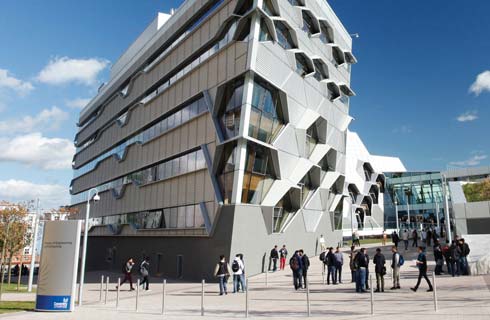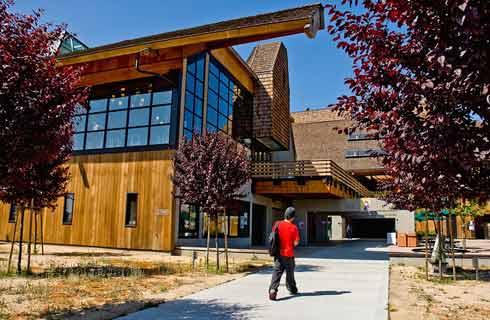Doctor of Philosophy in Communication, Rhetoric, and Digital Media

学历文凭
Ph.D.

专业院系
Communication, Rhetoric and Digital Media

开学时间

课程时长

课程学费

国际学生入学条件
IDP—雅思考试联合主办方

雅思考试总分
6.5
- 雅思总分:6.5
- 托福网考总分:80
- 托福笔试总分:550
- 其他语言考试:Duolingo with a total score of 110 or better.
CRICOS代码:
申请截止日期: 请与IDP联系 以获取详细信息。
课程简介
相关申请
 预科
预科 奖学金
奖学金 实习机会
实习机会 在校学习
在校学习 跨境学习
跨境学习 校园授课-线上开始
校园授课-线上开始 在线/远程学习
在线/远程学习
开学时间&学费
学费信息仅供参考,请与IDP联系以获取详细信息
| 开学时间 | 时长 | 学费 | 地点 |
|---|
学校排名

世界排名251
数据源:
泰晤士高等教育世界大学排名
关于北卡罗莱纳州立大学罗利分校

北卡罗莱纳州立大学成立于1887年是一所公立综合性大学,学校占地 1,600 英亩,位于罗利市。学校下设农业与生命科学院、教育与心理学学院、工程学院、人文与社会科学院、管理学院、自然资源学院、物理与数学学院、纺织学院和兽医学院及设计系。学校很早以前就在农业、工程、和教学等领域有着良好的基础。随后,又在生命科学、物理科学、纺织、设计、和社会科学等领域有了长足的发展。北卡州大有大约7000名教职员工,其中教授及科研人员约1800多人。许多教研人员在全国享有盛誉。目前,学校有19人为国家科学院院士或工程院院士;6人为美国建筑院院士;2人为美国文学院院士;1人为美国哲学院院士;还有1人为美国医学院院士。 北卡州大拥有超过500项的技术专利,在专利技术力量上排名全美第3位;学校来自产业界的研究资助,排名全美第7位;在公立研究型大学中,非政府资助研究经费,排名全美第12位。北卡罗来纳州立大学现有学生近3万名(其中包括约1000名外国学生)。 每年的预算大约有8.2亿美元。其中用于科研和技术开发的经费则占全美国第31名。学校师资力量雄厚,有19位教授被选为美国科学院(National Academy of Sciences)或工程院(National Academy of Engineering)院士。
本校相关课程

Bachelor of Science in Polymer and Color Chemistry
学历文凭
Bachelor Degree
开学日期
课程费用总额


纺织工程理学学士
学历文凭
Bachelor Degree
开学日期
课程费用总额


Bachelor of Science in Textile Technology
学历文凭
Bachelor Degree
开学日期
课程费用总额


Bachelor of Science in Fashion and Textile Management
学历文凭
Bachelor Degree
开学日期
课程费用总额


Bachelor of Science in Soil and Land Development
学历文凭
Bachelor Degree
开学日期
课程费用总额


Bachelor of Arts in Anthropology
学历文凭
Bachelor Degree
开学日期
课程费用总额

其他相关课程

传播学文学士
 劳伦森大学
劳伦森大学学历文凭
Bachelor Degree
开学日期
课程费用总额


修辞与传播学学士学位
 温尼伯大学
温尼伯大学学历文凭
Bachelor Degree
开学日期
课程费用总额


专业传播学文学士
 皇家大学
皇家大学学历文凭
Bachelor Degree
开学日期
课程费用总额


传播学文学士
 劳瑞尔大学
劳瑞尔大学泰晤士高等教育世界大学排名:1491
学历文凭
Bachelor Degree
开学日期
课程费用总额


英语文学士-修辞学[一般]
 滑铁卢大学
滑铁卢大学学历文凭
Bachelor Degree
开学日期
课程费用总额


英语文学士-修辞学
 滑铁卢大学
滑铁卢大学学历文凭
Bachelor Degree
开学日期
课程费用总额










 美国
美国